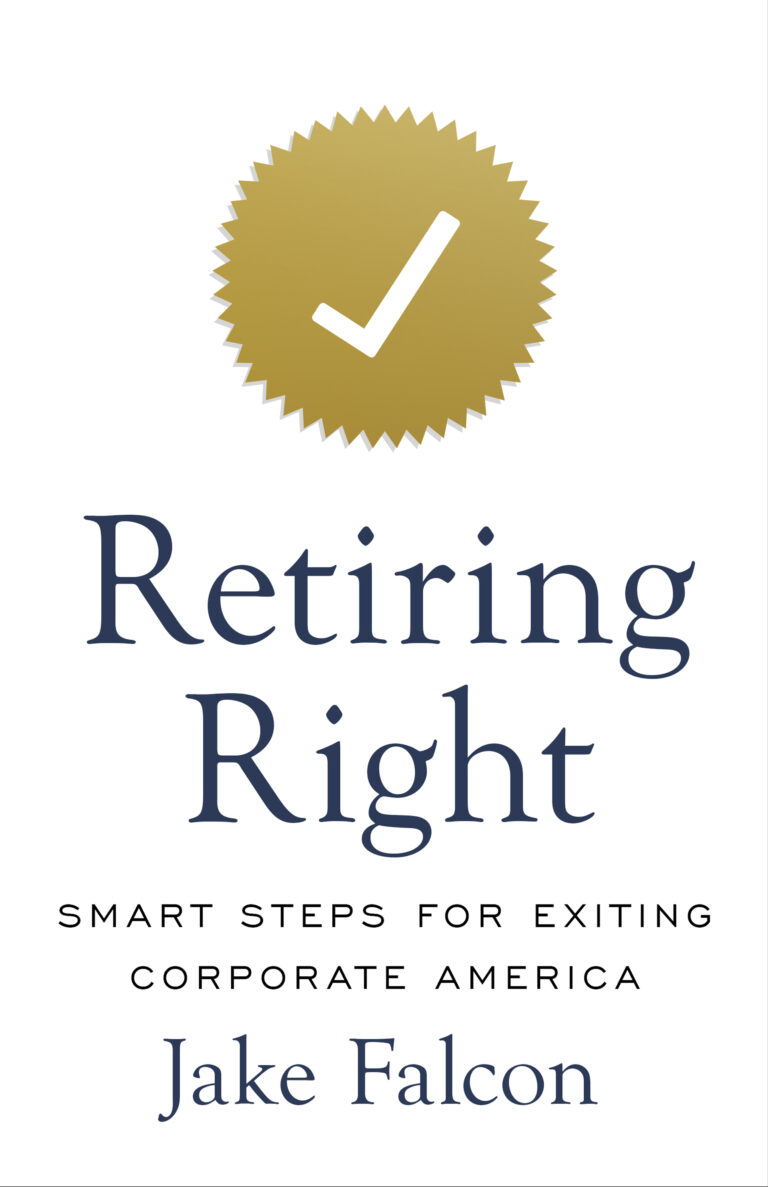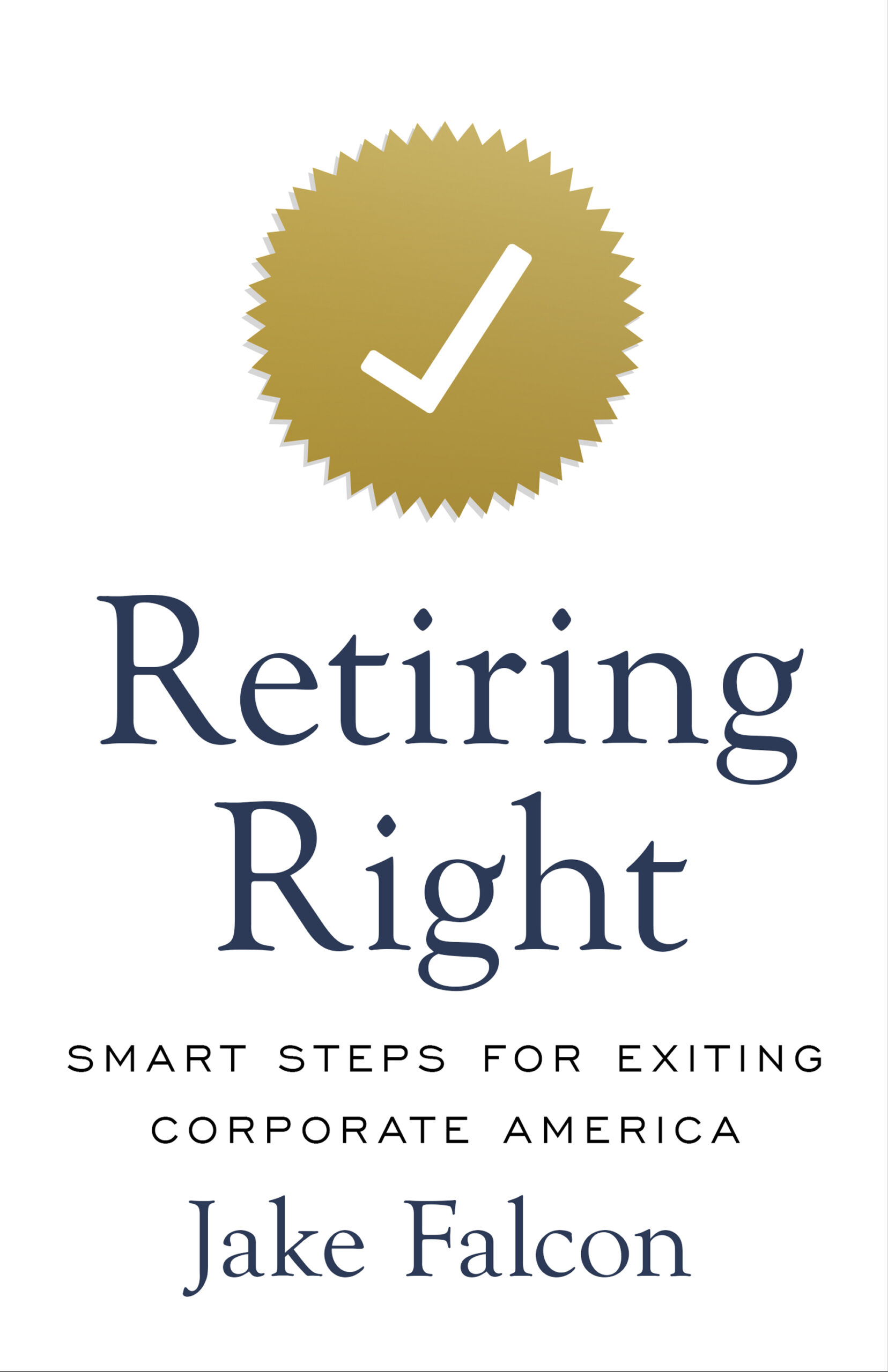RETIRING RIGHT: Smart Steps for Exiting Corporate America, by wealth manager Jake Falcon, is intended for a very narrow readership: corporate associates in publicly traded companies. This is the niche market that Falcon, who heads a company of 20 professionals managing close to $1 billion for clients in 30 states, has chosen. His 150-page book is a condensed but comprehensive guide for these executives to have what he describes as a “financially successful and emotionally fulfilling retirement.”
The main challenges to achieving this, Falcon says, are emotional and psychological. The first chapter is titled “Finding Your Purpose.” Retirement, Falcon warns, can be “lonely, isolating, and downright depressing.” It is especially hard on corporate associates who, he says, tend to be overachieving, highly motivated individuals. “I’ve learned throughout the years that the corporate executives who most successfully retire (and live there happily) are those who have addressed the emotional component of this major life change,” Falcon writes.
Chapter One details the various emotional issues that can arise and provides advice on how to deal with them. This is the most interesting part of the book, since the rest deals with the nuts-and-bolts of retirement. Over the next four chapters, Falcon goes over estate planning, tax planning, healthcare expenses, investment management, and life and long-term care insurance. He lists 15 questions that everyone looking at retirement should ask. These include: When can I retire? What will my monthly income be? How much can I spend each month? How do you leave a financial legacy? How do I pay less in taxes?
For corporate associates, he proposes one key question: “Once I retire, what will I be doing at 10:00 am on any given Tuesday?” Once they can answer this, it helps them plan for a meaningful retirement. Chapter Two looks at financial planning. Falcon goes through the procedures to optimize retirement savings, minimize taxes, and maximize financial stability. He emphasizes that relying only on interest-bearing accounts is not the best strategy. Executives planning retirement, he advises, should invest part of their savings in a “diversified portfolio focused on growth, which also provides inflation protection.”
In the sixth and final chapter, titled “What to look for in an advisor,” Falcon looks at fiduciary standards, why insurance agents and investment brokers are not financial advisors (“their financial incentives may be in direct conflict with yours”), and fees (“should be presented in a clear and transparent manner”).
Save for the first chapter, the book’s material is dry and often technical, albeit presented in an informal style. But this should be even more engaging for executives familiar with such material. This may also be a calculated approach, intended to persuade readers about the need for a wealth manager like the author. Nonetheless, its comprehensive content will be useful for executives concerned about a secure retirement.
Jake Falcon’s RETIRING RIGHT: Smart Steps for Exiting Corporate America is a useful guide for corporate executives.
~Kevin Baldeosingh for IndieReader


